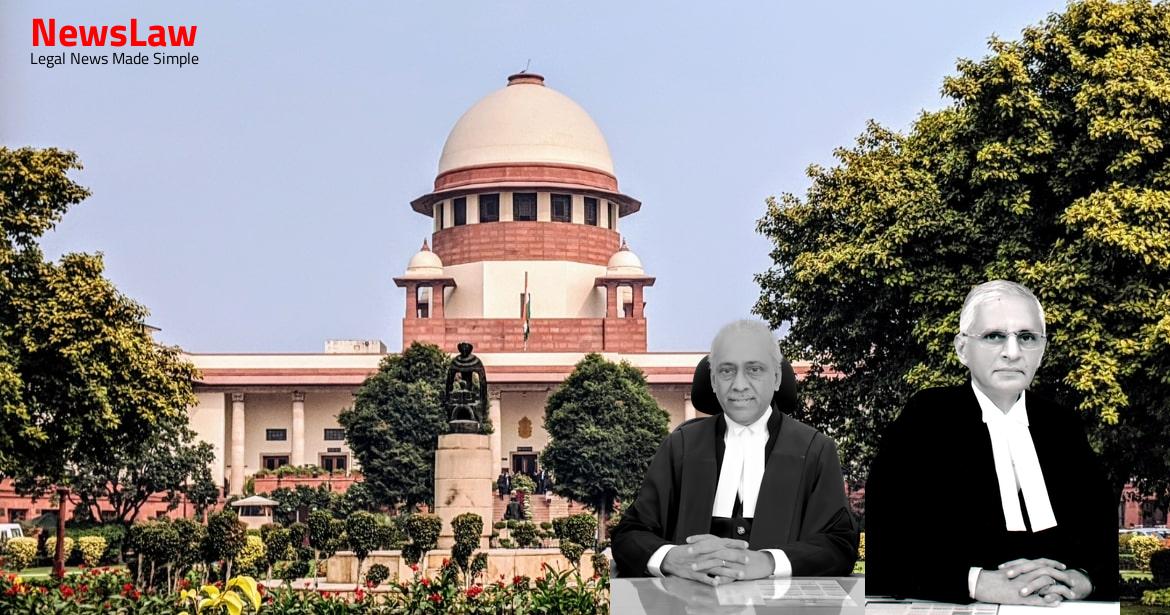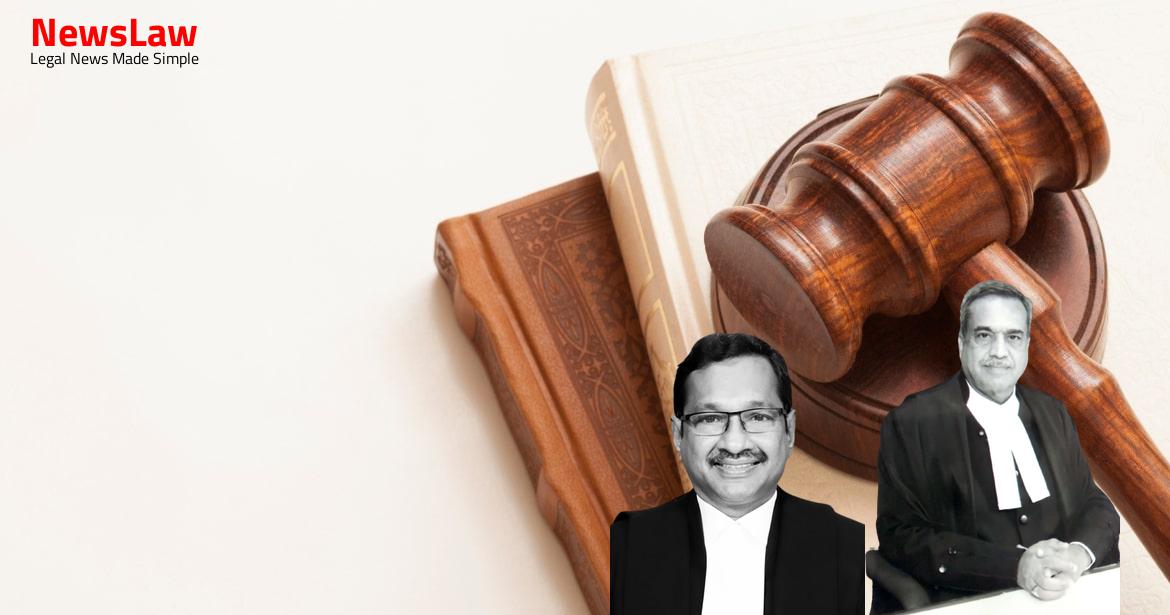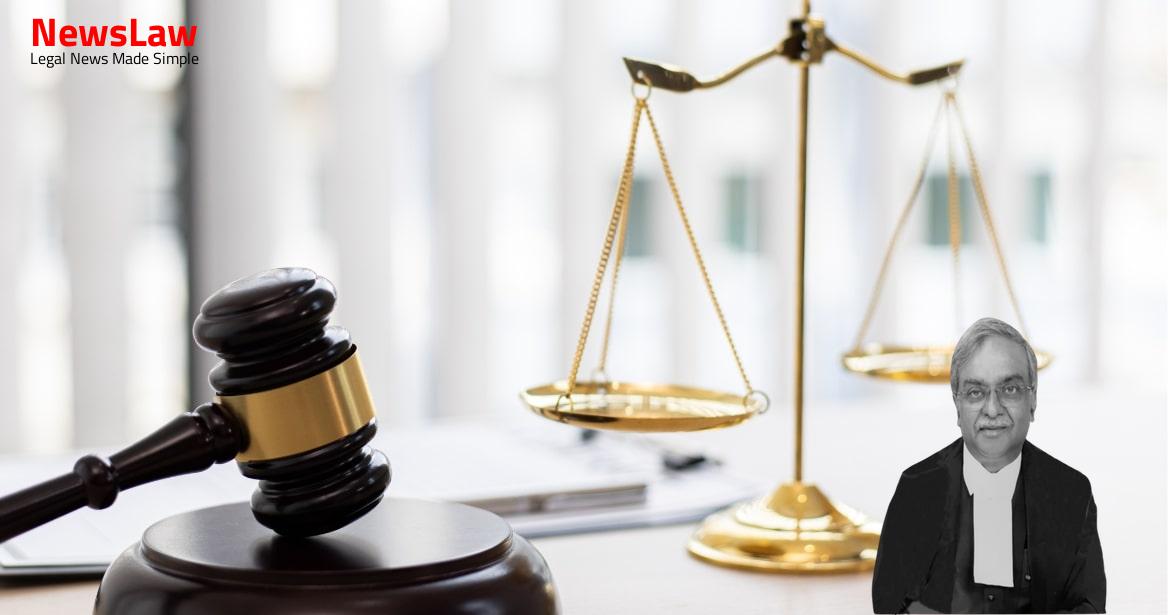In a recent legal case, the court delved into the intricate process of harmonizing arbitration clauses to resolve complex disputes. The court’s legal analysis played a pivotal role in determining the relevant arbitration clause for the case, emphasizing the need for clarity and coherence in dispute resolution mechanisms. Let’s delve deeper into this fascinating journey of navigating arbitration clauses in the legal landscape.
Arguments
- Applicant Balasore Alloys Limited filed a petition under Section 11(6) of the Arbitration and Conciliation Act, 1996, seeking appointment of a sole arbitrator.
- The dispute arose between the applicant and respondent regarding 37 purchase orders for the supply of High Carbon Ferro Chrome.
- An agreement dated 31.03.2018 and initially a limited agreement dated 19.06.2017 were entered into for the sale of 2000 MT.
- Clause 7 of the purchase orders provided for dispute resolution through arbitration by an Arbitral Tribunal.
- The applicant nominated Mr. Justice Amitava Lala as an arbitrator, but the respondent failed to appoint their arbitrator.
- The applicant seeks the appointment of an arbitrator in light of the respondent’s failure to nominate one.
- Nature of transaction is not disputed between the parties.
Also Read: Analysis of High Courts’ Jurisdiction and Court Orders Under Article 142
Analysis
- The Arbitral Tribunal has been constituted by the ICC based on the clause in the Agreement dated 13.03.2018.
- The parties have raised issues regarding secondary costs, quantity and quality of products invoiced, and disputes have arisen.
- The respondent contends that disputes should be resolved as per the Agreement dated 31.03.2018, invoking arbitration under Clause-23.
- The applicant argues for arbitration under Clause-7 of the contract terms.
- The court analyzed the arbitration clauses in the purchase order and the Pricing Agreement to determine the relevant clause for the current dispute.
- The court noted that the applicant did not initiate the arbitration process.
- The court emphasized the need to harmonize or reconcile the two agreements to understand the nature of the dispute for arbitration resolution.
- The dispute involves discrepancies in pricing, payments, and deductions by Medima affecting Balasore’s rightful amounts.
- The applicant is invoking the arbitration clause in the purchase order consisting of 37 separate purchase orders.
- The arbitration clause specifies that disputes relating to the interpretation or implementation of the contract/order shall be referred to an Arbitral Tribunal of 3 Arbitrators.
- Each party will appoint one Arbitrator, and the two appointed Arbitrators will select the third Arbitrator who will act as the Presiding Arbitrator.
- The venue of the arbitration proceedings is specified to be in Kolkata, and the language of arbitration shall be English.
- Any claim, controversy, or dispute arising out of the Agreement must be submitted to arbitration in the United Kingdom, conducted in English according to the Rules of Arbitration of the International Chamber of Commerce.
- The arbitration is to be governed by and construed in accordance with the laws of the United Kingdom.
- The case of Olympus Superstructures Pvt. Ltd. vs Meena Vijay Khetan & Ors. (1999) 5 SCC 651 dealt with two different arbitration clauses in two related agreements between the same parties.
- The decision emphasized that disputes in connection with the main agreement and disputes in regard to ‘other matters’ connected with the main agreement should be referred to the general arbitration clause of the main agreement.
- In situations where disputes cover both the main agreement and an additional agreement, the general arbitration clause of the main agreement should govern to avoid conflicting awards.
- Harmonization of the general arbitration provision in the main agreement and the arbitration provision for a named arbitrator in the additional agreement is required in cases involving disputes in both agreements.
- The terms of the Pricing Agreement dated 31.03.2018 govern purchases and sales, final price determination, payment of provisional price, adjustment of advance, determination of final sale price, and monthly accounting and payment.
- The purchase order relied upon by the applicant does not provide for such pricing determination, except for the price of the quantity ordered for and special terms relating to provisional price.
- Disputes raised by the applicant indicate that pricing issues are to be determined as per the provisions of the Agreement dated 31.03.2018 for payment under each purchase order.
- The Agreement dated 31.03.2018 applies to transactions starting from 08.08.2017, as per Clause-20(a) of the Agreement.
- The Agreement dated 31.03.2018 governs all transactions, including those prior to its execution date, as it was intended to be comprehensive and encompassing.
- The arbitration clause in the Agreement dated 31.03.2018 supersedes the arbitration clause in the purchase order for the current dispute regarding pricing and payment terms.
- Invoking Clause-7 of the purchase orders is deemed inappropriate when the arbitration clause in the Agreement dated 31.03.2018 has been invoked, and an Arbitral Tribunal has already been appointed.
Also Read: Electoral Malpractices in Mayor Election
Decision
- The petitioner is the plaintiff in Arbitration Application No.15/2020.
- The petitioner has filed a Special Leave Petition, seeking relief.
- The arbitration award in question is final and binding on the parties.
- The petitioner appealed to the Division Bench, which declined interim relief but admitted the appeal for consideration.
- Commercial Suit No.59/2020 is pending before the High Court of Calcutta.
Also Read: Balancing Power and Transparency: Electoral Bonds Struck Down, Disclosure Mandated
Case Title: BALASORE ALLOYS LIMITED Vs. MEDIMA LLC (2020 INSC 550)
Case Number: ARBIT.CASE(C) No.-000015 / 2020



